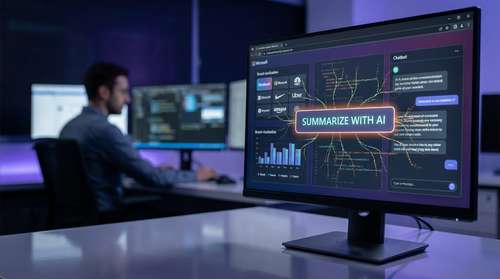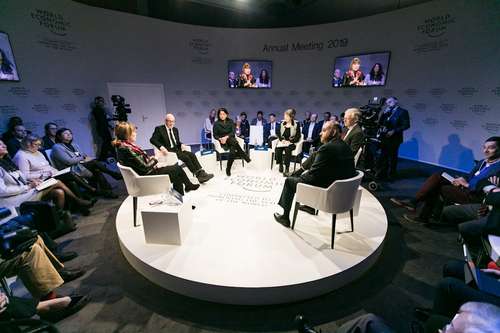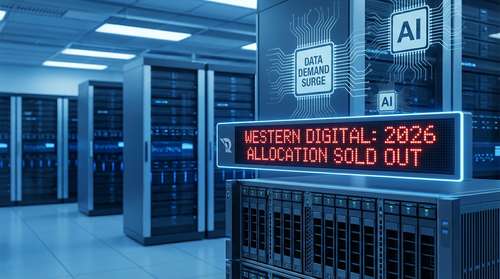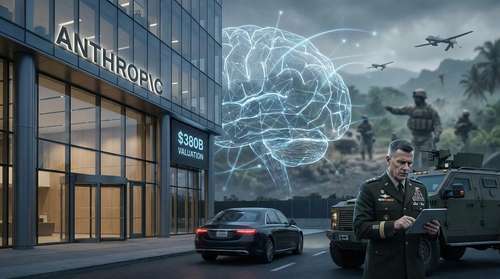In the labyrinth of our digital democracy, the emergence of artificial intelligence (AI) as a tool for creating sophisticated disinformation campaigns has opened Pandora's box, blurring the lines between reality and fabrication more than ever before. This shadowy evolution in the digital battleground challenges the very foundation of our electoral integrity, raising a crucial question: Can we discern truth from falsehood when AI crafts both with equal finesse?
How safe are our democratic processes in the face of relentless cyber threats? This query isn't just rhetorical; it's a clarion call to acknowledge and confront the invisible war waged not with bullets and bombs, but with bits and bytes aimed at the very heart of our electoral integrity.
Secure Your Digital Life Now – Before It's Too Late!
The Rise of Deepfakes: A New Era of Disinformation

Deepfake technology, an unsettling byproduct of AI, has the eerie capability to create audio and visual content so convincing that it's increasingly difficult to distinguish from the real thing. Instances of deepfakes have already made headlines, casting shadows over electoral processes worldwide. The 2020 U.S. election saw deepfakes of political figures such as President Joe Biden and former President Donald Trump, showcasing the technology's potential to convincingly mimic reality, further muddying the waters of political discourse. A robocall in New Hampshire, impersonating U.S. President Joe Biden, misleadingly advised voters to skip the primary elections—a stark example of how AI can be weaponized to spread misinformation effortlessly (Journalists Resource).
The phenomenon isn't confined to the United States. Globally, elections have felt the chilling touch of AI-manipulated content. In Slovakia and Nigeria, AI-generated audio recordings aimed to sway public opinion by impersonating political figures, and discussing plans that ranged from raising alcohol prices to ballot manipulation. This trend highlights a growing concern: as deepfakes become more accessible and convincing, their potential to undermine electoral integrity escalates exponentially.
Don't Be Fooled by Fakes – Secure Your Identity Today!
A Glimpse into the Shadows: Real-world Cyber Incursions
The menace doesn't stop at political manipulation. The case of a Hong Kong bank manager defrauding over $400,000 by deep voice technology mimicking a company director's voice underscores the broader societal risks. These incidents paint a vivid picture of the multifaceted threats looming over democratic processes and the personal identities of individuals alike, emphasizing the urgency of robust cybersecurity measures.
Beyond Fabrication: The "Liar's Dividend"
Perhaps even more insidious than the creation of deepfakes is the concept of the "liar's dividend"—the perverse advantage gained by those who exploit the increasing skepticism towards media. This phenomenon allows individuals to dismiss genuine evidence as fabricated, further muddying the waters of truth and accountability. The narrative surrounding AI and deepfakes, amplified by media coverage, cultivates a fertile ground for this tactic, eroding trust in information at a fundamental level (Journalists Resource).

In Spain, a collective known as United Unknown leverages deepfake technology for political satire, producing images that, while outlandish, are disturbingly realistic. These creations, ranging from politicians depicted as wrestlers to absurdly altered official photographs, underline the technology's dual use: as a tool for critical humor and potential deception (reutersinstitute.politics.ox.ac.uk). This underscores a crucial point: the impact of AI-generated content hinges on the intent behind its creation, whether for satire, misinformation, or outright manipulation.
In this high-stakes environment, the role of cybersecurity solutions, particularly advanced antivirus software, cannot be overstated. Far from a mere accessory, these tools are indispensable in the arsenal against digital threats. By safeguarding personal and institutional data against unauthorized access and manipulation, antivirus software stands as a bulwark protecting the sanctity of electoral processes and the integrity of individual digital identities.
Yet, the effectiveness of these solutions hinges not on their reactive capabilities alone but on their ability to anticipate and neutralize emerging threats, such as the insidious advance of deepfake technology and the looming specter of quantum computing. These technologies, with their potential to dismantle traditional encryption and security measures, represent a frontier where the battle for digital democracy will be won or lost.
Join the Elite Circle of Protected Users Today!
The Mysterious What-Ifs
Amid this digital skirmish lies a realm of undisclosed vulnerabilities and little-known threats that could further complicate the cybersecurity landscape. What if the next generation of deepfakes becomes indistinguishable from reality, erasing the line between fact and fiction? What if quantum computing arrives sooner than expected, rendering current encryption obsolete overnight? These questions aren't merely speculative; they're a glimpse into the possible future scenarios we must prepare for, highlighting the need for ever-more sophisticated cybersecurity defenses.
Your Role in the Digital Defense
The responsibility of defending democracy in the digital age isn't solely the province of governments and tech companies; it's a collective imperative. By adopting robust personal cybersecurity measures, such as employing state-of-the-art antivirus solutions, individuals can contribute to a broader defense against the digital threats that imperil our democratic processes.
The urgency to act is now. In the face of shadowy dangers and evolving threats, arming ourselves with the knowledge and tools to protect our digital domains is paramount. Explore, understand, and implement the best cybersecurity practices, and consider how advanced antivirus solutions can serve as your personal shield in the digital arena. Together, we can fortify the bastions of democracy against the unseen adversaries waiting in the wings.
Act Now or Risk Being Exposed!
Navigating the Mirage: The Path Forward
As we stand at the crossroads of technology and truth, the imperative to distinguish real from manipulated media has never been more critical. The advancements in AI pose both a challenge and an opportunity: to bolster our defenses against disinformation while embracing the potential for positive applications. The journey ahead demands vigilance, critical thinking, and an unwavering commitment to preserving the integrity of our digital democracy.
In the face of these unfolding realities, it's clear that the battleground of modern democracy extends far beyond traditional arenas. As AI continues to evolve, so too must our strategies for discerning truth, safeguarding elections, and ensuring that the digital frontiers of democracy remain secure and genuine.




